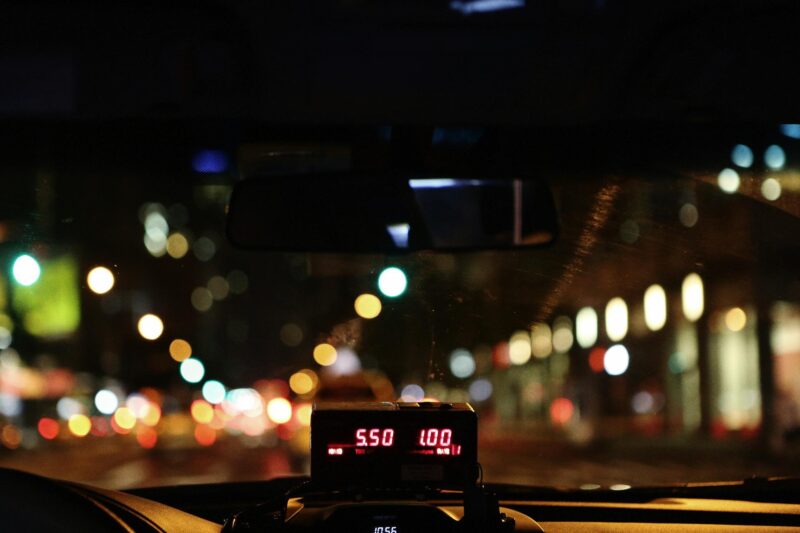Having so much invested in their vehicles, taxi drivers – like any other business – can’t afford to give free rides.
Each fare goes towards the cost of maintaining and running their taxi or private hire vehicle, their salary, and any other expenses.
Many taxi drivers ask for payment at the end of a journey, either in cash, by bank card, or via an app. But they can ask passengers to pay their fare at any point during a journey – even before the ride has begun.
The biggest reason for this is to stop passengers leaving without paying or refusing to pay the full fare for a journey, which is theft. They are using a service they know they have to pay for but are trying to cheat the driver out of the rightful fare.
Hackney carriages are most at risk from this sort of theft as they are the only drivers licensed and insured to be hailed in the street or at a taxi rank. Private hire vehicles and cabs booked in advance via apps usually have payments made automatically and do not always require the passenger to pay the driver directly. It also means there is also an electronic trail to follow in the event of a problem, whereas a black cab passenger can disappear and remain anonymous.
Fare dodging can happen anytime and anywhere, but usually takes place at night, especially if passengers have been drinking. After enjoying a night out, they either don’t have enough money to cover the full fare, or, under the influence of alcohol, decide they can pay the driver less than the metered fare – or nothing at all.
These situations can cause major problems for drivers, especially if there are several intoxicated passengers in the cab. The slightest disagreement can quickly become a flashpoint and things can escalate and even turn violent, putting the driver at risk of serious harm.
Even if things do not reach this point, taxi drivers have better things to do than waste time trying to reason with passengers about what the fare should be. It takes even longer and ties up more valuable resources if the police have to be called to settle a dispute which will go in the driver’s favour.
By asking for the agreed fare upfront, taxi drivers can avoid any aggravation at the end of the journey. If challenged about wanting payment up front, drivers can explain that it makes things easier at the drop-off and they can go on to the next job and not wait around for groups to find the right money if they are paying by cash.
It also means that anyone who needs to visit a cashpoint to pay the fare can do so before the ride begins so there are no issues when they get to their destination and can’t find an ATM. By accepting payments by bank cards, drivers can also help make the transaction go even more smoothly.
As well as dealing with passengers who are brimming with Dutch courage, taxi drivers also face the real problem of criminals using their services and making off without paying, as reported by Taxi Point.
It can also be good practice for taxi drivers to ask for payments upfront for longer journeys, where they would be significantly out of pocket if the passenger turns out to be a fare dodger.
Asking for payment upfront is down to the discretion of each driver. It can even be the policy of a taxi firm. Drivers might become suspicious about anyone who refuses to pay upfront but must realise that some passengers might be offended if they are asked to pay before making the journey.
But passengers can be reassured that the fare has been set and paid for and won’t change when they reach their destination.
There are different reasons for asking for payment upfront, and our advice is to remain polite, calm and professional, which should avoid confrontation and keep everyone safe.


